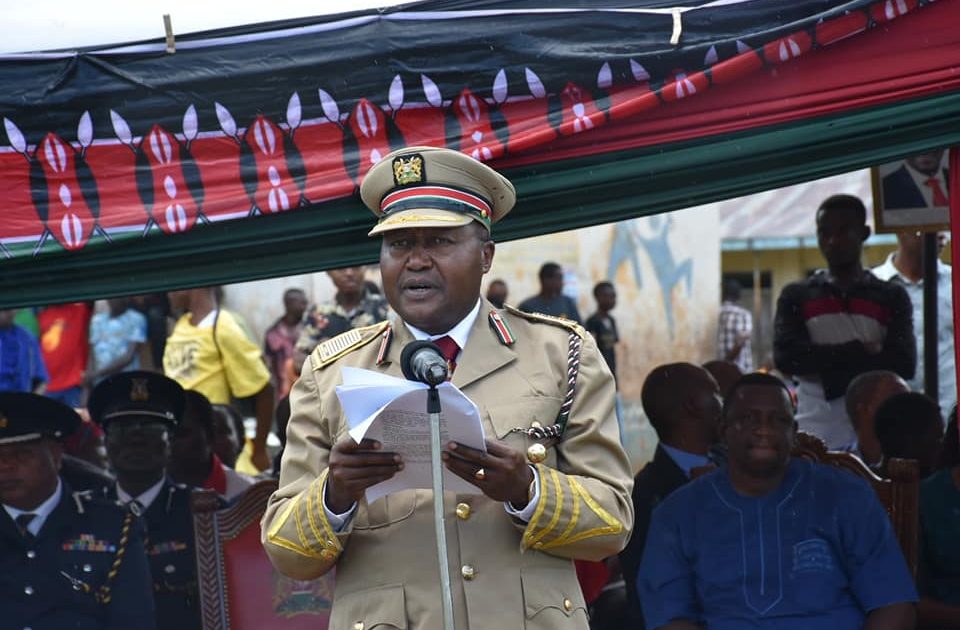Kwale County Commissioner (CC) Karuku Ngumo has outlawed a group calling itself ‘Taireni’ saying they were carrying out criminal activities in different part of the county.
There are fears that the illegal group is following in the footsteps of the proscribed Mombasa Republican Council (MRC) which has been advocating for the breakaway of the coastal region from the rest of the country.
Ngumo who was speaking on Thursday during celebrations to mark Jamhuri Day at Mkongani Primary School grounds said the activities of the controversial group has created a climate of fear and despondency among area residents.
He said members of the shadowy group were going round the county holding secret meetings inciting indigenous communities against ‘outsiders’.
“The security apparatus has been closely following the activities of Taireni but rest assured we are not going to let them disrupt peace,” he said.
The administrator who is the chairman of the county security and intelligence committee said the group was sowing divisions among the diverse communities living in the region.
“We are not going to allow illegal groups to fester in the region and disrupt the peace and tranquility enjoyed by wananchi,” said Ngumo.
Ngumo asked the youth to disassociate themselves from the shadowy group saying the security apparatus would not relent to crackdown on groups out to create disharmony.
He said the government will not allow any group to perpetuate criminal activities in the name of grievances.
On his part Kwale Governor Salim Mvurya said politicians with an eye on the 2022 general elections were behind the sprouting of such illegal groups as Taireni.
Mvurya asked local leaders to desist from hate speech and inflammatory remarks that could inflame passions and create hostility among the various communities living in the county.
“The unity of Kenyans should be uppermost in the minds of people seeking elective positions,” said the two term governor.
The county governor said the authorities should deal firmly with people involved in incitement and creating divisions among Kenyans along ethnic, political and religious lines.
By Hussein Abdullahi




